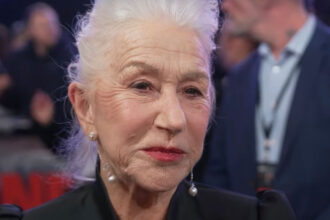Nastia Liukin Video Interview, U.S. Olympic Gold Medalist
When you listen to U.S. Olympic Gymnast Nastia Liukin, 22, tell the story, it seems she was destined to be an Olympian from the time she was born. Nastia’s father, Valeri Liukin, won two gold and two silver medals as a Soviet gymnast in the 1980 Olympic Games. Her mother, Anna Kotchneva, was a world champion rhythmic gymnast. “I remember as soon as I knew what the words ‘Olympic games’ meant I wanted to go there,” Liukin told Uinterview exclusively. “Whatever that meant, I wanted to go to the Olympics and I wanted to follow in their footsteps and achieve what they did.”












Leave a comment